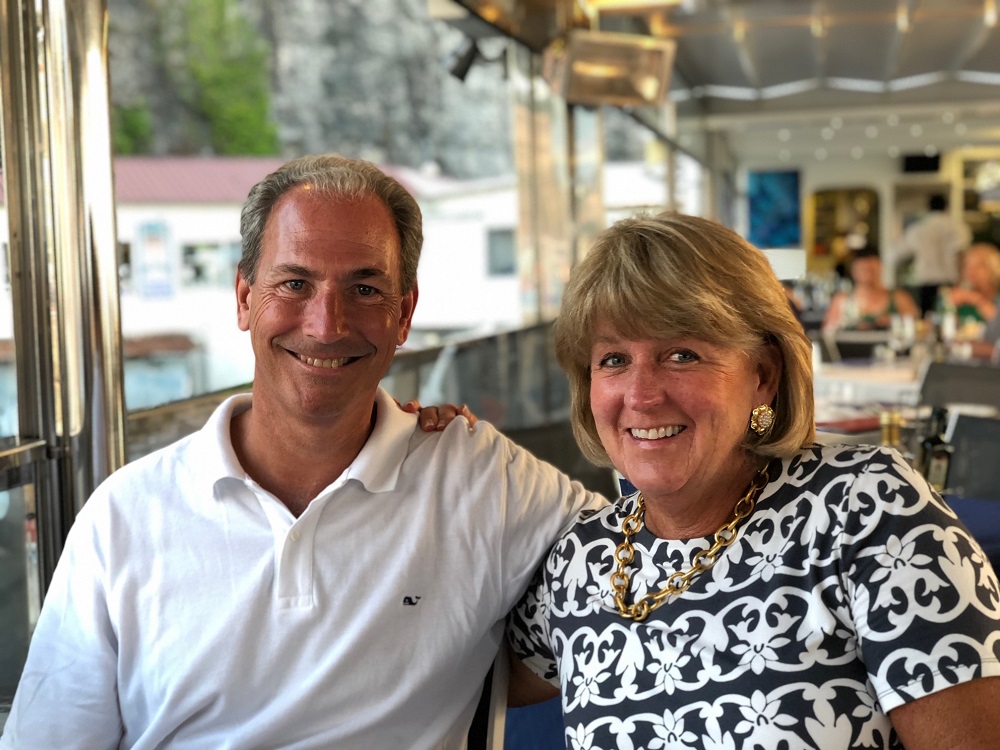Johns Hopkins UniversityEst. 1876
America’s First Research University
If you’re looking to raise money for a worthy cause, it’s hard to find better ambassadors than tots on trikes.
For the past five years, dozens of preschool students in the Baltimore area have participated in Pedal for Pediatrics, a bike-a-thon to raise funds for the Division of Pediatric Oncology at Johns Hopkins’ Sidney Kimmel Comprehensive Cancer Center. The program is the brainchild of Margy Hooper, a member of the division’s Pediatric Oncology Advisory Council and a teacher at Baltimore’s Redeemer Parish Day School. For years, the school had participated in a fundraiser for St. Jude’s Children’s Hospital, but some of the staff — including Hooper — saw a need closer to home.
“If any child in our school were to be treated for cancer, they’d probably go to Hopkins,” says Hooper, whose son was treated there for osteosarcoma. “Then we had a student who had retinoblastoma and another who had leukemia. We said, ‘This has to be done for our local hospital.’”
Redeemer’s Pedal for Pediatrics event includes three parts. The students — age 3 through pre-first-grade — “ask” for pledges from their families. They attend an educational session about what cancer is and how it can affect children just like them. They read the book “Alex and the Amazing Lemonade Stand” and talk about how the money they’ve raised will help doctors make children facing cancer feel better.
“The kids understand, and some of them are really affected by it,” Hooper says. “We’ve had parents tell us their children will come home and want to talk about what they learn.”
Finally, there’s the action: The children bring their bikes, trikes, and scooters — and, of course, helmets — to school, then line up with their class on a track created by chairs and caution tape. After a bike safety lesson, they set off, cheered by parents holding coffee cups in one hand and cameras in the other. After the short ride, the students enjoy an ice cream party.
“Our parents love it because it’s quick, it’s meaningful, and it doesn’t put any of them out of work for very long,” Hooper says.

In recent years, McDonogh School, Grace Preschool, St. Paul’s Plus, Ascension Lutheran Nursery School, Garrison Forest School, and Trinity Episcopal Preschool have joined Redeemer, and Hooper says three more schools have voiced interest for 2020 events. The Pedal for Pediatrics series raises about $30,000 annually for research initiatives in the Division of Pediatric Oncology at Hopkins, says Advisory Council Chair Bill Hooper, Margy Hooper’s husband.
“We obviously feel lucky that our son got through [his cancer treatment], but in some cases, they’re treating cancer the same way they did 40 years ago,” Bill Hooper says, adding that faculty members often speak at council meetings about their research. “We hear about how they’re so close to breakthroughs — they know “this,” and they know “that,” but they need to find the connection between the two.”
Private philanthropy is central to helping that connecting work get done, says Don Small, director of the Division of Pediatric Oncology. Only four percent of the billions of dollars spent on cancer research each year goes toward pediatric oncology research.
“Pediatric cancer is the top cause of childhood death,” Small says. “Research is the only way we can improve outcomes for children, increase the cure rate, and decrease the side effects of treatment. The things that come out of our laboratories end up being translated into new protocols.”
Although his faculty apply for and often receive funding from the government and large cancer-focused foundations, gifts like those from Pedal for Pediatrics ensure promising research can continue regardless of funding gaps. Such funding is currently supporting research on immunotherapy, targeted therapy, new approaches to bone marrow transplants, and some clinical trials, Small explains.
Increasing philanthropic support for this work at Hopkins means educating and inspiring more donors to get involved. That makes programs like Pedal for Pediatrics — and leaders like the Hoopers — so important to Small, his team, and the Kimmel Cancer Center.
“Even when you look at some of the [pediatric cancer] cures, they come at a large price for a lot of these kids, in short- and long-term side effects. We need ambassadors to get out there and show the rest of the community the importance of this research and help raise additional funds,” Small says. “Bill and Margy have done a very special job in the short time they’ve been leading the council, and we’re so grateful for the amazing work they’re doing.”
Header photo by Chris Barbalis via Unsplash
Topics: Friends of Johns Hopkins Medicine, Johns Hopkins Medicine, Promote and Protect Health